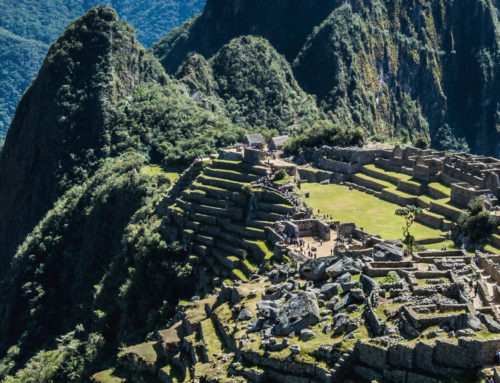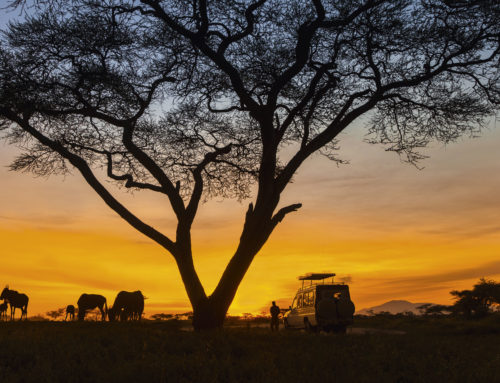From the activities involved to the locations they take place in, an element of risk is an inherent aspect of the adventure travel space — but of course, no form of travel is entirely without risk. According to figures in ABTA’s 2018 Travel Trends report, the Foreign and Commonwealth Office (FCO) handled 23,311 consular assistance cases involving British nationals overseas in 2016 and 2017, including 4,019 deaths, 3,592 hospitalisations and 5,491 arrests.
While some level of risk may be unavoidable, adventure tourism providers have a duty of care to their travellers, staff and locals to manage and mitigate that risk, to plan and deliver their products as safely as possible while minimising the chance of damages for all concerned and ensuring they’re covered for areas such as public liability. An able operator will have a crisis management plan in place to aid preparedness in case of emergency, from designated staff with responsibility for leading the crisis response to a system for alerting company employees and families affected in a crisis and maintaining communications with relevant authorities.
Agents’ responsibilities, meanwhile, include a duty of care not to mis-sell products they feel are unsuitable, from advising clients if they feel they lack the physical fitness required for a certain tour to working with reputable operators.
It seems that some areas of risk are increasing. ATTA’s 2018 Adventure Travel Trends to Watch report points not only to climate change as an increasing source of risk to travellers but ‘decline in democracy’, as outlined in studies such as the Freedom in the World 2018 report by Freedom House. In an absence of law, notes the ATTA, there’s an increased likelihood of travellers suffering from security services and judicial systems acting arbitrarily, not to mention a breakdown in relations between said country and the traveller’s home government.
The good news is that, according to ATTA’s 2018 Adventure Travel Trends Snapshot study, 76% of operators in Europe have a documented safety and risk management plan in place. Early advances in accreditation also bode well. Back in 2014, the International Organization for Standardisation (ISO) created an international standard, ISO 21101, setting out the basic requirements for adventure tourism operators looking to implement a safety management system, since bolstered by ISO 21102 and ISO 21103.
Other examples of sector-specific standards include the British Standard BSI 8848, with membership of professional bodies such as the ATTA and the International Rafting Federation (IRF) a further indicator of a supplier’s professionalism.
Christina Beckmann, Director of strategy and impact, ATTA
How big a role does certification play?
CB: There’s an ISO standard for adventure travel companies; however, it was only adopted in 2014 and as such there are very few certifiers for this. There are a multitude of certifications for different adventure activities that guides might have depending on their sport. A better measure is competence, rather than certification, as many people are competent but may not have had the opportunity to obtain certification.
How much of the risk is perceived — and how much is actually real?
CB: Some adventure travel experiences are genuinely very risky — think climbing Mount Everest. Others provide mainly low-consequence risk, such as a rafting trip on a mild river. There’s a spectrum of risk potential in every experience. The combination of people, activity, location, weather, skills of participants and guides — all of these things can influence the risk factor.
Presumably, some degree of risk is appealing for this sector?
CB: Not surprisingly, enthusiasts who build up expertise are comfortable with higher levels of risk than grazers who are new to this type of travel and want some thrills without the risk. For agents or suppliers, this customer presents an important opportunity to emphasise safety practices. People do want excitement, but more than that, they want learning, time in nature, and meaningful experiences.
Russell Walters, Strategic director, North America, ATTA
What risks are involved in putting together adventure packages?
RW: When selling adventure travel, agents should balance the experience level, activity level and degree of difficulty of selected trips with the needs and capabilities of their clients. The majority of adventure travel trips involve cultural activity with adventurous elements that are suitable for many people.
What are an agent’s responsibilities to their client?
RW: Know your clients. Also, know the operators, the style of trips they offer and the destinations they go to. In many cases an operator will offer various options, ranging from easy to more advanced adventures. It’s the agents’ responsibility to do their homework and work with reputable tour operators that follow best practices and sound environmental procedures. The agent should always be thinking about how they can match the right clients to the right trip at the right time — to do otherwise risks poor outcomes for the clients, for the operator and for other guests on the trip.
What kind of questions should clients and travel agents be asking suppliers?
RW: What sort of preparations does the operator suggest a client engages in before a trip? Would they recommend a moderate exercise programme before participating in a multi-day hike or bike trip? This could provide some clues as to the type of exertion required on any given tour. General review sites provide an agent with insights into what to expect for their clients.
What about FCO travel advisories?
RW: FCO warnings may invalidate travellers’ insurance. It’s worth checking with your tour operator. ATTA doesn’t offer similar global warnings as such, but a number of our members, including companies such as Global Rescue, provide regional destination reports and travel protection/medical evacuation coverage worldwide.
Ultimately, it comes down to preparation. A hike in the Lake District in the middle of the summer can be relatively easy and without risk. That same hike in bad weather can present serious consequences, so it’s really about knowing and understanding the environment and the conditions you could face that might make the difference between an uncomfortable, risky hike and a spectacular adventure vacation.
Question to ask before travelling
Have I done my homework?
Handy starting points include consulting the government’s Travel Aware campaign and its handy checklist Adventure Travel Abroad: Play it Safe.
What’s the situation on the ground?
Keep abreast of the Foreign & Commonwealth Office’s (FCO) regularly updated travel advisories. Remember, an advisory against travel to a given destination can affect your — and your operator’s — insurance cover. Other useful resources include ATTA’s news site and online community. Also, look for any local laws or customs you could potentially fall foul of.
Am I up to it?
Operators typically grade their products to give an idea of difficulty or exertion required. Be realistic about your level of fitness and consider training before you go.
Is the supplier up to it?
Look — or ask — for evidence of any sector-specific standards, guidelines or accreditation schemes they adhere to. Ask if they have a crisis management plan in place and look for membership of professional bodies such as the ATTA.
How do I know if I have adequate insurance?
Check what’s covered and scrutinise key areas such as the excess. Also, ascertain the extent of the supplier’s insurance arrangements, not least in terms of medical care and repatriation to the UK.
Is my kit adequate?
Consider the geographical and climatic conditions and ensure your kit is up to the task. Also make sure you know — and are comfortable with — the standard of any kit provided by operators.
What medication will I need?
Arrange any jabs and malarials you need ahead of time, having consulted your GP or local travel clinic. Also, ensure you have adequate supplies of anything else you need, such as prescription medication.
Does my home government have a local embassy or consulate?
Find out where it is and ascertain what emergency assistance it can provide. Consider checking in with them before leaving for risky areas, and leave emergency contact details and details of travel plans with family or friends back home.






